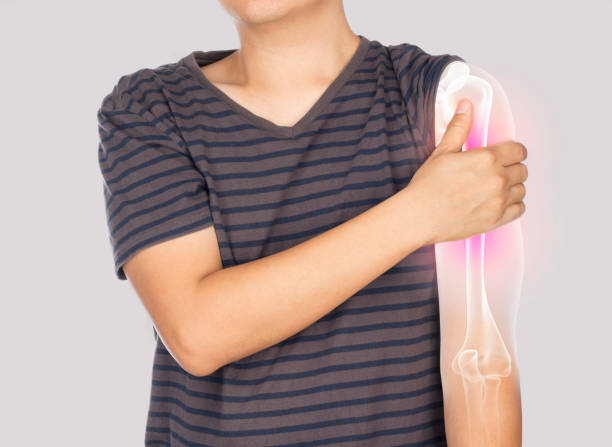What are common hip problems?
Common hip problems include;
- Arthritis.
- Bursitis.
- Hip pointers.
- Osteonecrosis.
The hip is an essential joint that forms a connection between the pelvis and the thigh bone. Besides being the largest joint in the human body, the hip joint is usually stable and not easily hurt. For this reason, it bears massive pressure through daily activities like walking, running, jumping, and squatting.
Read on to understand different hip conditions, causes, and risk factors. Plus, we’ll help you understand how to get hip pain treatment.

Below are the common causes of hip disorders:
Osteoarthritis is a common cause of hip pain that affects people as they age. It is prevalent among overweight patients and those aged 50 years or more. The condition is characterized by worn-out joint cartilage and substantial bone changes around the joint.
Typically, a cartilage cushion exists between the pelvis and thigh bone inside the hip joint. When the cartilage cushion breaks, you have Osteoarthritis.
Bursitis is an inflammation of the bursa, a fluid-filled sac that regulates friction between bones and muscles. The abnormal inflammation usually results from an infection, injury, or overuse of the hip joint. As a result, you may experience severe pain, swelling, and inability to move the affected joint.

Hip fractures are common in older people since bones decrease in density as we grow older. As per the American Academy of Orthopedic Surgeons, more than 300,000 Americans sustain hip fractures yearly. Incidentally, most fractures involve older patients aged 65 years or more.
Younger people can also sustain hip fractures, usually due to falling off a ladder or a vehicle collision.
Rheumatoid arthritis is one of the autoimmune conditions occurring when the body’s immune system mistakenly attacks joint membranes. Like Osteoarthritis, the condition causes inflammation in the joint areas, including the hip, hands, elbows, neck, and shoulders.
A hip dislocation is an injury to the hip joint in which the upper head of the thigh bone moves out of its usual socket within the pelvis. Usually, a hip dislocation occurs when the joint experiences a massive force, such as in a car accident or falling from a high object. Hip dislocation may also occur after surgical operations such as joint replacement.
Hip conditions can affect everyone, regardless of age, gender, or health status. However, certain factors will likely increase your chances of developing the condition.
Below are the major risk factors associated with hip complications:
As you advance in age, you are at a higher risk of developing hip complications owing to a decrease in bone density. That explains why hip fractures are more common in people aged 50 years or older.
Some medical conditions can increase your chances of having hip injuries. For instance, osteoporosis causes bone degeneration, making them likely to break. Similarly, intestinal conditions that inhibit your body’s ability to absorb vitamin D and calcium can lead to hip complications.
Sedatives, antipsychotics, and sleep-inducing medication can cause dizziness, increasing the risk of falling. Still, cortisone medications may weaken your bones after long-term use, increasing your chances of having hip joint complications.
Your lifestyle choices affect your general health and determine your risk of hip disorders. For instance, if you don’t engage in regular weight-bearing exercises like walking, you may develop weaker bones, exposing you to fractures.
Vitamin D and calcium are two essential minerals that promote healthy bone formation. Conversely, a deficiency in both minerals leads to weaker bones. Therefore, it is advisable to eat Calcium-rich foods to enhance bone density and strength.
Although there are various treatment options, hip treatment usually focuses on the condition’s specific cause. As a result, you should understand the cause of your condition before obtaining treatment.
Below are hip pain treatment options:
The first treatment is to have enough rest and allow the pain to reduce. If your symptoms persist, your doctor may recommend crutches or walking aids.
You can exercise the muscles and tendons surrounding the hip joint to relieve pain. However, you should adopt a regular exercise routine for effective results.
Like other orthopedic conditions, therapy is effective in treating hip joints. Therefore, your doctor may recommend physiotherapy modalities to help you regain mobility, increase muscle strength and resume a normal life. In addition, ice packs may be effective for minimizing swelling, while heated pads will help soften rigid muscles.
Your doctor may prescribe anti-inflammatory medications to relieve pain from arthritis, tendonitis, and bursitis.
Surgery is usually the last treatment resort for hip complications. A hip replacement surgery is typically ideal if your condition limits routine activities such as walking. In addition, surgery may be suitable if pain persists or muscle stiffness limits you from moving your leg.
The hip joint is an important element of the lower body structure. Although it is relatively stable compared to other joints, it is still prone to complications through daily activities. If you suspect you could have a hip dislocation, fracture, or injury, do not hesitate to contact Sforzo, Dillingham, Stewart Orthopedics+Sports Medicine for diagnosis and treatment.
Common hip problems include;
The hip joint consists of muscles, bones, cartilage, and lubricating fluids. As a result, signs may vary depending on the affected part and the cause of your condition.
Generally, you’ll notice the following symptoms if you have a hip condition:
Hip pain primarily occurs when there is a complication in the hip joint. Although injuries are the major causes of hip pain, some diseases may also contribute to your pain.
Common diseases that cause hip pain include:
As healthcare is ever changing, Sforzo | Dillingham | Stewart Orthopedics + Sports Medicine, is doing things differently…






